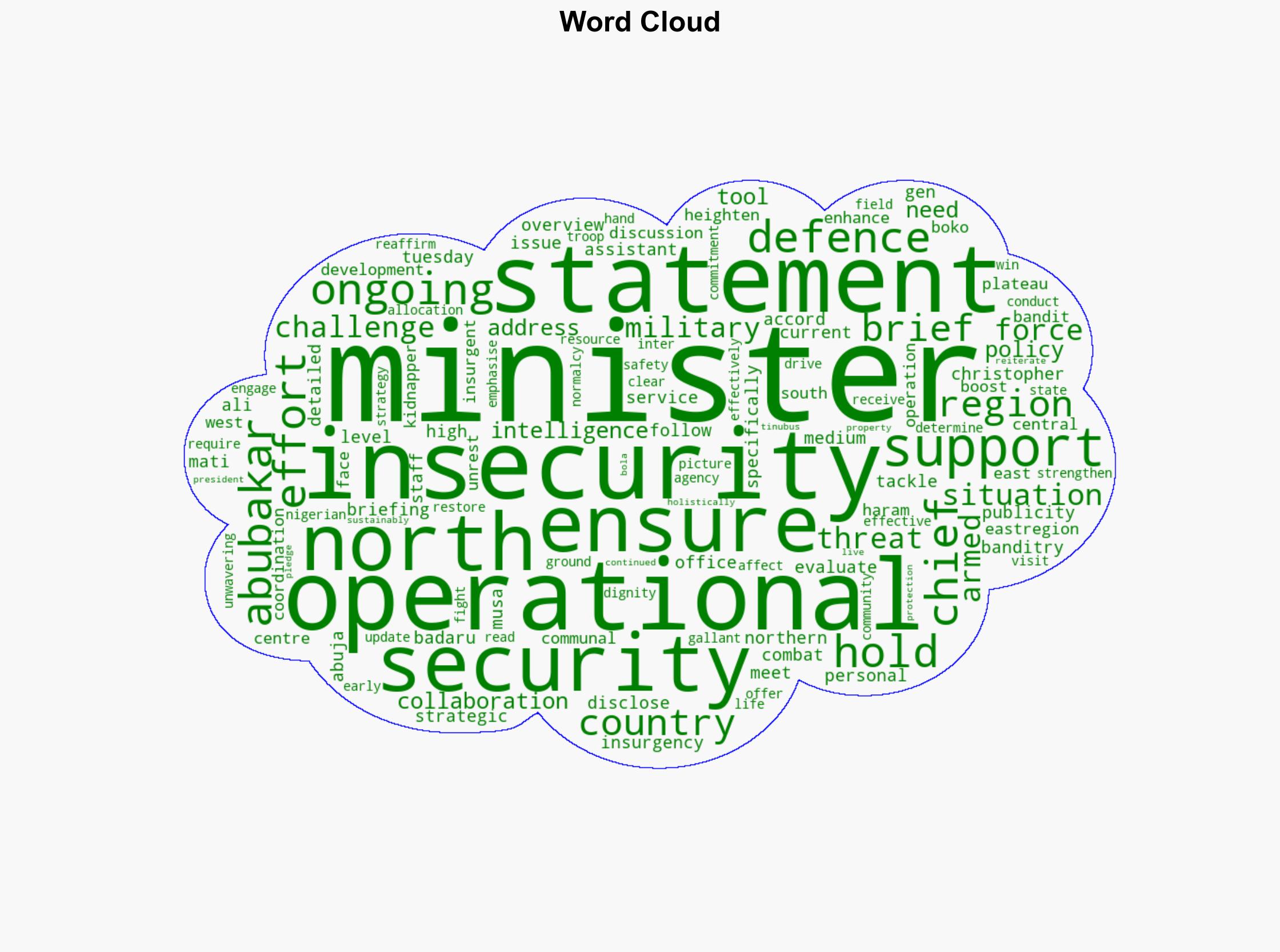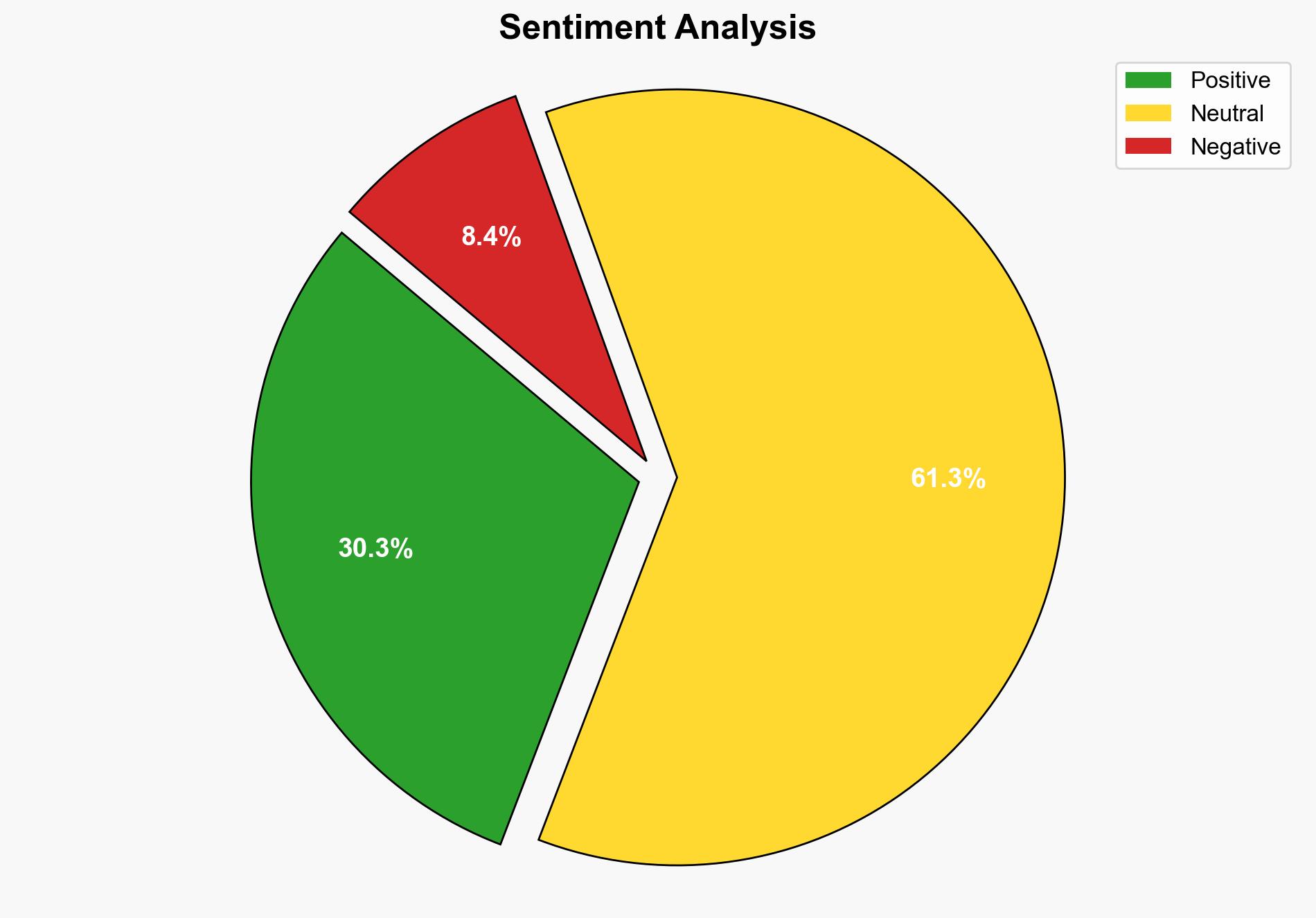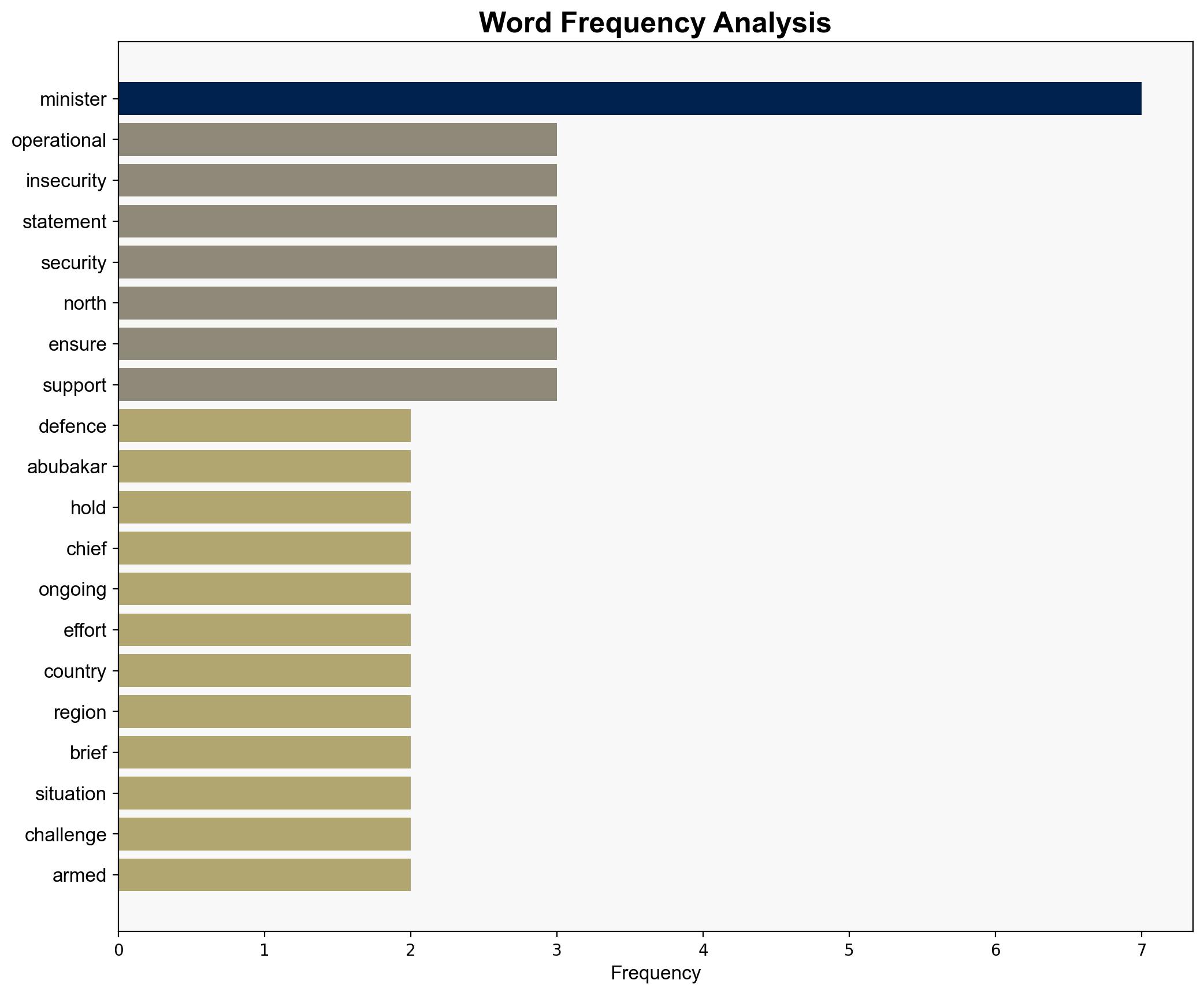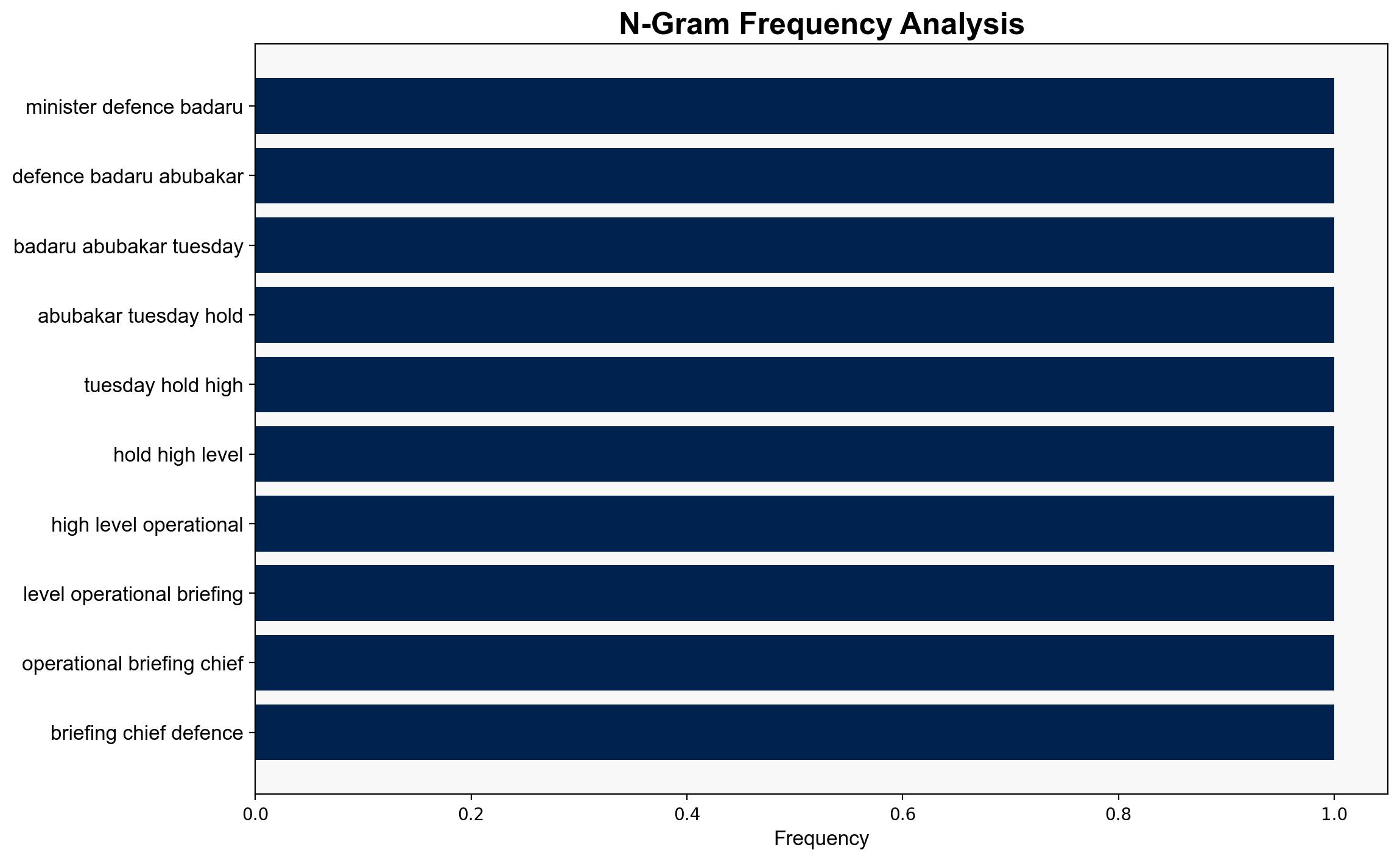Defence minister service chiefs review security strategies – The Punch
Published on: 2025-04-16
Intelligence Report: Defence minister service chiefs review security strategies – The Punch
1. BLUF (Bottom Line Up Front)
The recent high-level briefing between Badaru Abubakar, Christopher Musa, and other service chiefs focused on evaluating and enhancing security strategies across Nigeria, particularly in regions affected by insurgency and banditry. The meeting emphasized the need for improved military operations, intelligence coordination, and inter-agency collaboration to address security threats effectively. Strategic recommendations include bolstering intelligence-driven and community-engaged approaches to ensure sustainable security improvements.
2. Detailed Analysis
The following structured analytic techniques have been applied for this analysis:
General Analysis
The briefing provided a comprehensive overview of the security situation in Nigeria, highlighting ongoing challenges in the North-East, North-West, North Central, Plateau, and South-East regions. Key threats include Boko Haram insurgency, banditry, kidnappings, and communal unrest. The discussions underscored the importance of enhancing military operations and resource allocation to restore stability. The commitment to supporting troops with necessary tools and policies was reaffirmed, alongside a focus on intelligence-driven strategies.
3. Implications and Strategic Risks
The persistent security threats pose significant risks to national security and regional stability. The ongoing insurgency and banditry could lead to further displacement of communities and hinder economic activities. There is a potential for increased humanitarian crises if the security situation deteriorates. The need for effective coordination among security agencies is critical to mitigate these risks and ensure the protection of lives and property.
4. Recommendations and Outlook
Recommendations:
- Enhance intelligence-sharing mechanisms among security agencies to improve response times and operational effectiveness.
- Invest in community engagement initiatives to foster trust and cooperation between security forces and local populations.
- Implement technological advancements in surveillance and reconnaissance to bolster security operations.
Outlook:
Best-case scenario: Improved coordination and resource allocation lead to a significant reduction in security threats, restoring stability in affected regions.
Worst-case scenario: Continued security challenges exacerbate humanitarian issues and economic disruptions, leading to regional instability.
Most likely outcome: Gradual improvements in security with sustained efforts and strategic interventions, though challenges may persist in certain areas.
5. Key Individuals and Entities
The report mentions significant individuals such as Badaru Abubakar and Christopher Musa. These individuals play crucial roles in shaping and implementing security strategies across Nigeria.





